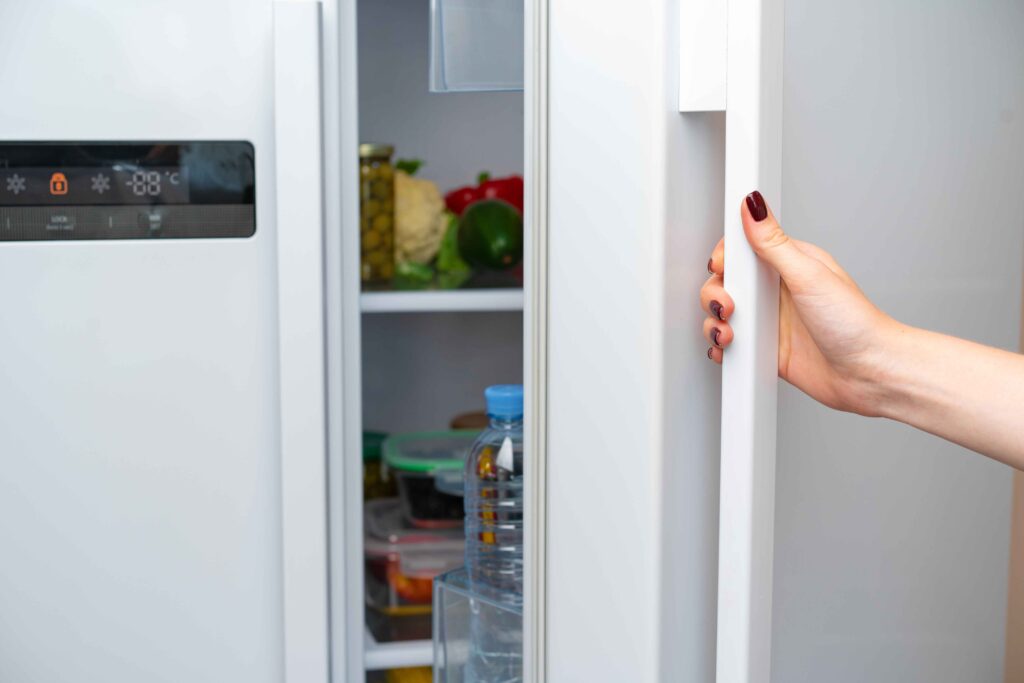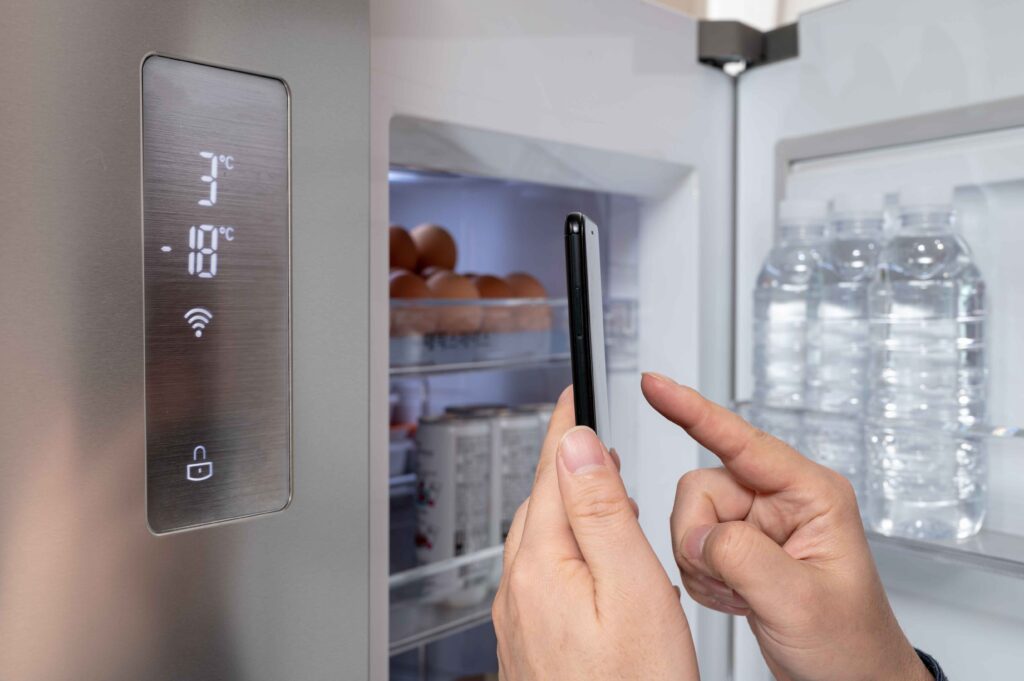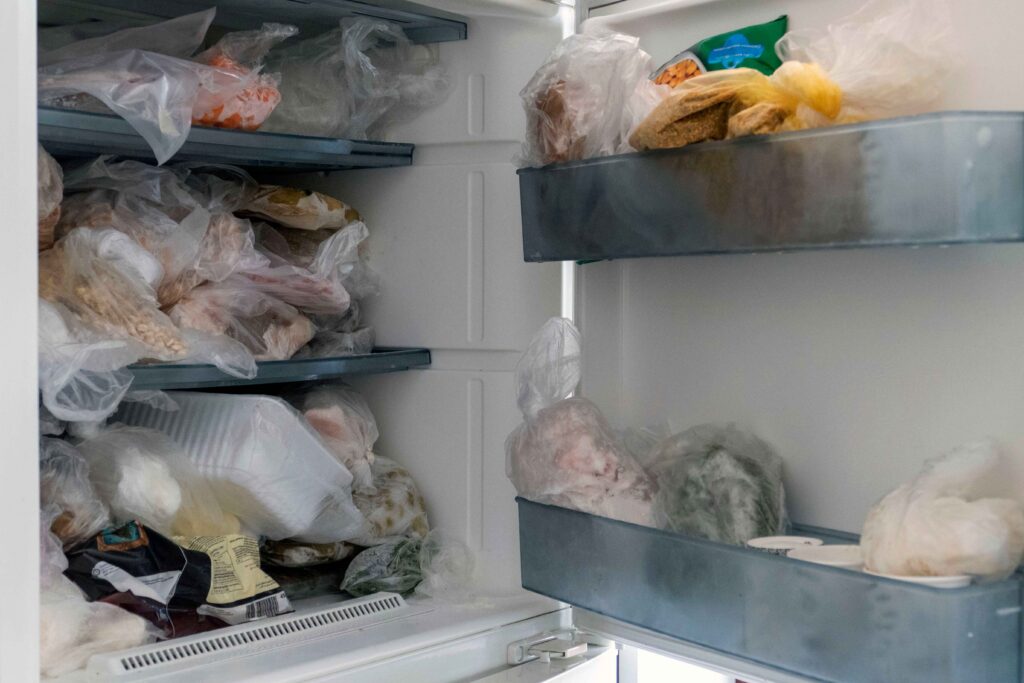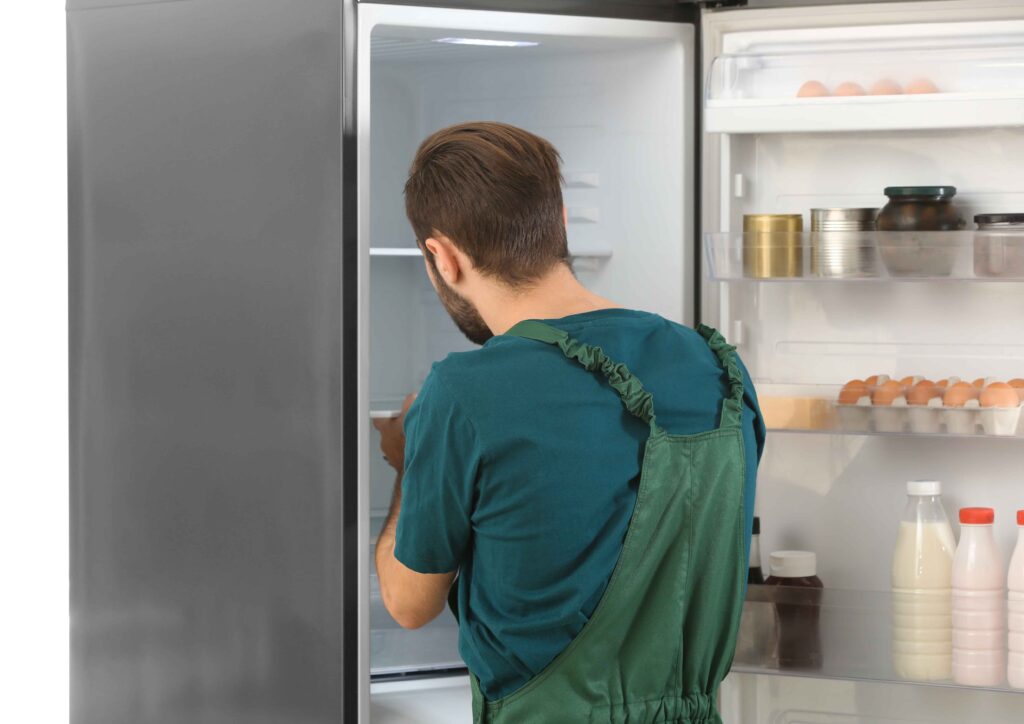Are you experiencing trouble with your Samsung refrigerator not cooling correctly? Keeping your food fresh and safe depends on your refrigerator’s functionality. It’s inconvenient and stressful when your Samsung fridge doesn’t maintain the right temperature. It raises a common question: why is my Samsung refrigerator not cooling?
In this post, we will look at why your Samsung refrigerator is not cooling. You can regain control over your Samsung refrigerator by understanding the potential causes of insufficient cooling and ensuring it operates at its best. Let’s get started.
The Importance of a Functional Refrigerator

The refrigerator is essential in modern homes, maintaining food freshness, safety, and longevity. Maintaining an efficient and healthy lifestyle depends on more than just convenience.
Preserving Food Freshness and Preventing Spoilage
The primary function of a refrigerator is to keep food fresh and safe for consumption. A refrigerator maintains a low temperature, usually between 37°F (3°C) and 41°F (5°C), which slows down bacteria growth. The preservation process extends the shelf life of various perishable items, such as dairy products, meats, fruits, and vegetables. In addition to saving money and resources, it prevents wastage.
Impact on Daily Life and Food Safety
With our fast-paced lives, having a functioning refrigerator significantly impacts our daily routine. We can store ingredients for meals, leftovers for later consumption, and beverages at a temperature that suits us. These conveniences mean we can plan meals efficiently, minimize grocery shopping trips, and eat better, home-cooked meals.
Why Is My Samsung Refrigerator Not Cooling: 10 Common Reasons
There are a lot of things that can cause your Samsung refrigerator not to cool well. Understanding these common causes of cooling inefficiency is essential so we can diagnose and fix it. The following are some of the most common reasons why your Samsung refrigerator isn’t cooling.
1. Incorrect Temperature Settings

Often overlooked, incorrect temperature settings are among the most common causes of inadequate cooling. The refrigerator and freezer may not cool correctly if the temperature is too high. Checking your temperature settings is the first step to troubleshooting cooling issues.
2. Dirty Condenser Coils
Refrigerator condenser coils dissipate heat from the appliance. When dirty, dusty, or clogged, they don’t release heat as efficiently, leading to poor cooling. Maintaining the condenser coils regularly is essential for optimal cooling performance.
3. Malfunctioning Thermostat
The thermostat regulates the refrigerator’s temperature. If your thermostat malfunctions, the temperature can fluctuate dramatically, making it challenging to maintain a desired level of cooling. If necessary, calibrate or replace the thermostat to ensure proper cooling.
4. Faulty Evaporator Fan
The evaporator fan circulates cold air throughout the refrigerator. When it malfunctions, cold air doesn’t get distributed effectively, which leads to inconsistent cooling. Restoring the refrigerator’s cooling capability requires identifying and resolving issues with the evaporator fan.
5. Damaged Door Gasket
As soon as the refrigerator door closes, the door gasket creates an airtight seal, keeping warm and cold air out. If the gasket is damaged, cracked, or doesn’t seal properly, the refrigerator will have trouble maintaining its temperature. The replacement of a damaged door gasket is essential for efficient cooling.
6. Refrigerant Leakage
Refrigerant is essential for the cooling process in refrigerators. Refrigerant leaks can lead to insufficient refrigerant reaching evaporator coils, resulting in inadequate cooling. To restore proper cooling functionality, you must fix any refrigerant system leaks.
7. Clogged or Frozen Defrost Drain
The defrost drain allows melted ice to drain from the refrigerator. A clogged or frozen drain can cause water to collect and freeze, reducing the refrigerator’s cooling ability. By regularly cleaning and unclogging the defrost drain, you can avoid this problem.
8. Insufficient Clearance Around the Refrigerator
For efficient cooling, there must be adequate airflow around the refrigerator. If the refrigerator is too close to the wall or surrounded by clutter, it can obstruct ventilation and cause overheating. By maintaining adequate clearance around the refrigerator, you ensure proper airflow and ensure consistent cooling.
9. Overcrowded Refrigerator

Too much food in the refrigerator and freezer can restrict airflow, preventing cold air from circulating. It can compromise efficiency and result in uneven cooling. Keeping your fridge and freezer well-organized and balanced is key to keeping it cool.
10. Compressor Issues
The compressor is the refrigerator’s cooling system’s heart. If it’s not functioning correctly, the entire cooling process is disrupted. Refrigerator compressor problems can range from electrical issues to mechanical failures, and addressing them promptly is critical.
Learn More: Why is My Whirlpool Refrigerator Not Cooling
When to Seek Professional Help

Some refrigerator issues can be resolved with simple troubleshooting and maintenance, while others require professional assistance. Knowing when to seek professional assistance with your Samsung refrigerator is essential. The following are indicators that you should call a pro:
Temperature Issues Persist
If you’ve adjusted the temperature settings, cleaned the coils, and ensured you’re getting enough ventilation, but the refrigerator still won’t stay cool, it’s time to call a professional. You should seek professional help if your temperature fluctuates or the readings are consistently wrong.
Unusual or Persistent Noises
It is common for refrigerators to produce some noise when they are operating. If you hear sudden, loud, or unusual noises over time, like banging, buzzing, or grinding, it might be an internal problem. A professional can determine where the noise is coming from and suggest fixes.
Frequent Electrical Problems
Consult a professional if you experience frequent power outages or tripped circuit breakers. Troubleshooting electrical problems can be dangerous and require specialized knowledge.
Visible Leaks or Excessive Moisture
Water pooling inside the refrigerator, under the crisper drawers, or around the base is a cause for concern. You may have a malfunctioning defrost drain, a damaged water line, or something else inside. A professional technician can figure out where the leak is coming from and fix it.
Unresponsive Controls or Panel
If the refrigerator’s control panel is unresponsive, displays error codes, or behaves erratically, it may point to electronic or control board issues. To diagnose and fix these components accurately, it’s best to get professional help.
Unusual Smells
Unpleasant odors coming from the refrigerator could mean mold, mildew, or food spoilage. A professional technician can thoroughly clean and deodorize your fridge, making it fresh and safe for food.
Frequent Frost Build-Up
Frost or ice accumulation in the fridge compartment could indicate a problem with the defrost system. Professionals can diagnose and repair the defrost mechanism to prevent further issues.
Comprehensive System Malfunctions
If multiple parts of your refrigerator aren’t working smoothly or the system is down, you’ll need professional help. Attempting to troubleshoot complex and interconnected issues without expertise can worsen the problem.
Lack of Technical Expertise
The safest and most practical way to troubleshoot and fix refrigerators is to get professional help. Repairing a refrigerator yourself without the right expertise can lead to further damage.
You should call a certified repair service when unsure about refrigerator issues. They have the skills, tools, and knowledge to diagnose and fix your Samsung refrigerator efficiently and effectively.
Maintenance Tips to Ensure Samsung Refrigerator Performance
Maintaining your Samsung refrigerator is key to keeping it in top shape and extending its lifespan. Check out these maintenance tips to keep your fridge running smoothly:
- Clean the interior surfaces, shelves, and drawers with mild detergent and warm water.
- Remove spills and food residue promptly to prevent odors and bacteria growth.
- With mild detergent and a damp cloth, gently wipe the exterior surfaces, including the handles and doors. Don’t overlook crevices and edges where dirt can accumulate.
- Maintain efficient heat transfer by cleaning the condenser coils twice a year.
- Regularly check the door gasket for wear, tear, or damage. Consider replacing the gasket if it is damaged or not sealing correctly.
- Keep the refrigerator temperature between 37°F (3°C) and 41°F (5°C) and the freezer at 0°F (-18°C) for efficient cooling and food safety.
- Make sure that refrigerator and freezer compartments are arranged to allow adequate airflow. Check for expired or spoiled food to maintain a clean and organized space.
- Regularly inspect door seals for wear, tear, or gaps. Ensure door hinges are appropriately aligned and tight to maintain a proper seal when closed.
- Food items or containers should not block the vents inside or around the refrigerator.
- Always check the refrigerator’s owner’s manual for specific maintenance guidelines and recommendations.
These maintenance tips ensure your Samsung refrigerator runs efficiently and reliably, providing optimal cooling and food preservation.
Learn More: Why is My Ge Refrigerator Not Cooling
The Takeaway
That’s all from today’s round-up on why my Samsung refrigerator is not cooling. Maintaining your Samsung refrigerator’s optimal performance is essential for the appliance’s longevity and food preservation. Implementing regular maintenance practices such as cleaning, temperature management, and organization is best to ensure efficient cooling.
You should also get professional help and follow the manufacturer’s guidelines. Maintaining your refrigerator not only makes it last longer but also makes your life easier.





